This article was medically reviewed by Muhammad Khan, MD, MPH. Dr. Muhammad Khan is a Gastroenterologist, with over 10 years of experience. Dr. Khan specializes in Pediatric Gastroenterology, Hepatology, and Nutrition, and has a special focus in Therapeutic Endoscopy. He received his Bachelor’s, Master’s, and Doctorate of Medicine degrees from The University of Utah. Dr. Khan completed his residency training at Eastern Virginia Medical School, where he was inducted into the prestigious Alpha Omega Alpha honor society. He then completed his fellowship training at Lucile Packard Children’s Hospital at Stanford University. He is a Fellow of both the American Society of Gastrointestinal Endoscopy (ASGE) and the North American Society for Pediatric Gastroenterology, Hepatology, and Nutrition (NASPGHAN).
There are 21 references cited in this article, which can be found at the bottom of the page.
wikiHow marks an article as reader-approved once it receives enough positive feedback. This article received 12 testimonials and 88% of readers who voted found it helpful, earning it our reader-approved status.
This article has been viewed 353,256 times.
Experts agree that good digestive health is important for absorbing nutrients from the food you eat, but digestive problems can occur if your system isn't running properly.[1] Although digestive problems may be uncomfortable and embarrassing, they're also very common. Research suggests that simple changes like adopting a high fiber diet, staying hydrated, incorporating fermented foods into your diet, and avoiding trigger foods are essential for good digestive health.[2] While simple dietary and lifestyle changes may relieve your digestive issues, see a doctor if your symptoms don't improve or they're interfering with your life.
Steps
Preventing Diarrhea and Constipation
-
1Increase your fiber intake. Fiber is made up of the parts of plant foods that your body can't digest, but instead pass without absorbing. Most people get only a small portion of the 25 to 30 mg of fiber that is recommended for healthy digestion.[3] Your body needs both soluble fiber, which dissolves in water to form a gel-like consistency, and insoluble fiber, which does not dissolve in water.[4]
- Get more soluble fiber by eating more oats, peas, beans, apples, citrus fruits, carrots, and barley. This will also help control your cholesterol and blood sugar levels.
- Eat more insoluble fiber by adding whole-wheat flour, wheat bran, nuts, beans, and vegetables like cauliflower and green beans to your diet. Increasing your intake of insoluble fiber will help keep your bowel movements regular and combat constipation.
- Many plant foods contain both soluble and insoluble fibers, so you can easily maximize your intake of both by eating a diet filled with diverse grains and vegetables.
- High fiber foods are generally low in calories and they will also help you control your weight, lower your blood sugar and cholesterol levels, and reduce your risk of hemorrhoids.[5]
-
2Drink plenty of water.[6] The combination of high fiber and water will increase the efficiency of your digestion by helping to soften and break down foods so your body can absorb the nutrients. It will also soften your stool and make regular bowl movements easier.[7]
- Doctors sometimes recommend eight 8-oz. glasses per day (1.9 l)[8] , but the amount you need will vary with your body weight, how active you are, and what climate you live in.
- If you get headaches in the evening, feel tired, lightheaded, nauseous, and sweat very little even when it is hot, you might need to drink more water.[9]
- Other signs of dehydration include reduced urine output and urine that is darker than usual.
Advertisement -
3Eat fermented foods daily to cultivate healthy gut bacteria. A healthy digestive tract has many species of microorganisms which help break down food. Eating fermented products like yogurt, kefir, kimchi, natural sauerkraut, tempeh and kombucha will help replenish and balance the bacterial community in your digestive system.[10] Not only will this combat diarrhea and constipation, but it may also improve or prevent several other health conditions:
- Diarrhea after antibiotics have killed some of the naturally occurring gut bacteria
- Irritable bowel syndrome
- Vaginal yeast infections and urinary tract infections
- Colds and flu
-
4Add supplements to your diet to be sure you are getting everything you need. It is best to do this in consultation with a doctor because supplements may alter how your body absorbs some medications. A doctor will help you adjust the dosages to be right for you.
- Take prebiotic supplements. These supplements will help you get enough fiber in your diet, promote the growth of healthy gut bacteria, and alleviate constipation.[11] You should make sure you area also eating prebiotic foods such as oatmeal or berries.
- Try probiotics. Probiotics are bacteria and yeasts that are similar to those naturally occurring in your digestive tract and aid digestion. Probiotic supplements can help treat diarrhea, irritable bowel syndrome, and ulcers.[12]
- Add essential vitamins to your diet. Essential vitamins are those that your body needs to function properly. They include A, B, C, and D vitamins. Adequate vitamin levels are necessary for your body to process proteins, carbohydrates, and fatty acids, absorb iron, and maintain immune functions. Supplements can help you avoid deficiencies.[13]
-
5
-
6Exercise for at least 30 minutes per day.[18] What is good for the entire body is good for the digestive system. Exercise will reduce stress, control your weight, and help your intestines to contract normally, moving food through your system.[19]
- The activity should be strenuous enough to increase your heart rate. Do something you enjoy like fast walking, jogging, or biking.
- If you have other health concerns like high blood pressure or heart problems, discuss any new exercise plans with your doctor before starting.
Combating Abdominal Pain, Bloating, Cramping, and Gas
-
1Eat many small meals rather than only a few large ones. This will prevent you from getting extremely hungry and eating too much.[20]
- Eat slowly to give your body time to register that you have eaten and signal to you that you are no longer hungry. Eating too fast makes it more likely that you will eat larger amounts before you realize you are full, causing uncomfortable stomach stretching and painful bloating.[21]
- Eat these small meals at the same time every day so that your body can anticipate the meal and physiologically prepare.
-
2Determine what foods irritate your digestive system and avoid them.[22] What foods people don't tolerate may vary greatly from person to person. Try keeping a food diary to discover if there are any foods that upset your GI system. Write down what you ate at each meal and then write down any symptoms that develop. Try eliminating groups of food that may trigger upset and see if your digestive health improves. Types of foods that are frequent triggers include:
- Fatty foods like cheese, deep-fried foods, and fast food
- Highly acidic foods including coffee, tea, tomatoes, vinegar, and citrus fruits (lemons, limes, grapefruits)
- Gassy foods such as beans, cabbage, or carbonated drinks
- Spicy foods
- Gluten/wheat
- Dairy, soy, corn, and fructose
-
3Cook with less salt. Salt causes your body to retain water, making you feel bloated. [23]
-
4Determine whether you are lactose intolerant. [24] People who are lactose intolerant do not produce enough of the lactase enzyme and so cannot digest lactose, the sugar found in milk and other dairy products. [25]
- Symptoms include bloating, cramping, gas, diarrhea, and nausea 30 minutes to two hours after consuming milk products.
- If these symptoms occur, try avoiding milk, cheese, ice cream and other milk products.
- Thoroughly boil milk before drinking it. This will break down the lactose.
- Take lactase capsules before eating milk products. The capsules will supply you with the necessary enzyme for digesting the milk.
- Substitute milk with products that don't have lactose, like soy or rice milk.
Reducing Heartburn
-
1Adjust your eating patterns. Avoiding eating late at night or right before bed often helps people reduce acid reflux and heartburn.
- Frequent, small meals keeps your digestive system busy without overloading it.[26]
-
2Eat lean proteins, such as fish and lean cuts of meat. These proteins are essential for healthy muscles, but lean cuts are less likely to cause heartburn and will be quicker to digest.
-
3Quit smoking to reduce heartburn. Smoking can damage the valve at the bottom of the esophagus leading to frequent heartburn.
- Stopping smoking will also reduce your risks of ulcers and cancers, including those of the digestive system.[27]
-
4Avoid alcohol. Excessive drinking can lead to inflammation of the stomach lining, ulcers, cramping, bleeding, abdominal pain, heartburn and acid reflux. Other organs involved in digestion such as the pancreas, liver, and gallbladder may also be damaged.[28]
-
5Decrease your coffee consumption. Caffeine may cause an increase in acidity in the stomach that can lead to high levels of heartburn and acid reflux.
-
6Reduce stress in your life. Stress has been shown to cause weight gain, constipation, diarrhea and a lowered immune system. It will leave you prone to the h. pylori bacteria that causes ulcers.
- Yoga, meditation, massage, baths and other relaxation techniques can help you to handle stress and inadvertently help your digestion.
- Regular exercise will also release endorphins and help you relax.
Consulting a Doctor
-
1Seek medical advice if you have improved your diet and your lifestyle, but your digestive conditions remain.[29] See a doctor right away if you show any of the following symptoms:
- Severe heartburn that is not helped by medication
- Incontinence
- Diarrhea or constipation that doesn't go away
- Abdominal pain that interferes with your daily life
- Vomiting
- Bloody or black stool
- Sudden weight loss
-
2Keep a food diary for several days leading up to your appointment. Your doctor will probably ask you what you eat and what symptoms you have.
- Record everything you ate, how much you ate, when you ate it, and how your system responded.
- This will help you and your doctor identify patterns indicating that certain foods might be triggers for you.
-
3Pay attention to your poop.[30] If you are having GI issues, it's important you take a look at your poop before visiting the doctor, as this can actually provide him with a lot of information. You can look at a Bristol Stool Scale to determine what kind of poop you have and how to describe it and talk about it with your doctor. This information can help your doctor determine how quickly food is passing through your body and may give clues toward certain digestive problems.[31]
-
4See a Gastroenterologist. This is a physician who specializes in the gastrointestinal tract and liver. A Gastroenterologist can determine if you have reflux, motility problems, colon polyps, gallbladder disease or an infection, for which she can test with endoscopy and biopsy.
-
5Make an appointment to be tested for food allergies.[32] Your doctor may screen you for allergies in several ways:
- A skin test in which the doctor will prick your skin, inserting a small amount of the potential allergens under your skin. If you are allergic, you will probably develop a raised bump.
- An elimination diet in which you stop eating all foods you suspect to be allergens for one to two weeks (until the symptoms disappear). Then you add the food items slowly back into your diet, one by one. When the symptoms return, you know that that food is triggering your digestive problems.
- A blood test to measure your immune response to various foods.
- An oral food challenge in which the doctor will monitor your reaction as you eat foods that are potential allergens.
Expert Q&A
-
QuestionWhat causes poor digestion?
 Peter Gardner, MDPeter W. Gardner, MD is a board certified physician who has practiced Gastroenterology and Hepatology for over 30 years. He specializes in diseases of the digestive system and liver. Dr. Gardner earned his Bachelor’s degree from the University of North Carolina and attended Georgetown Medical School. He completed his residency in Internal Medicine and then his fellowship in Gastroenterology at the University of Connecticut. He is a previous Chief of Gastroenterology at Stamford Hospital and remains on the staff. He is also on the staff of Greenwich Hospital and New York (Columbia) Presbyterian Hospital. Dr. Gardner is an Approved Consultant in Internal Medicine and Gastroenterology with the American Board of Internal Medicine.
Peter Gardner, MDPeter W. Gardner, MD is a board certified physician who has practiced Gastroenterology and Hepatology for over 30 years. He specializes in diseases of the digestive system and liver. Dr. Gardner earned his Bachelor’s degree from the University of North Carolina and attended Georgetown Medical School. He completed his residency in Internal Medicine and then his fellowship in Gastroenterology at the University of Connecticut. He is a previous Chief of Gastroenterology at Stamford Hospital and remains on the staff. He is also on the staff of Greenwich Hospital and New York (Columbia) Presbyterian Hospital. Dr. Gardner is an Approved Consultant in Internal Medicine and Gastroenterology with the American Board of Internal Medicine.
Board Certified Gastroenterologist Eating high fat foods slows down the emptying of the stomach, which can cause digestive issues. Laying down right after eating can also lead to digestive troubles. If you must eat a snack at night, avoid lying down or going to bed for at least two hours after eating.
Eating high fat foods slows down the emptying of the stomach, which can cause digestive issues. Laying down right after eating can also lead to digestive troubles. If you must eat a snack at night, avoid lying down or going to bed for at least two hours after eating. -
QuestionWhy am I bloated?
 Peter Gardner, MDPeter W. Gardner, MD is a board certified physician who has practiced Gastroenterology and Hepatology for over 30 years. He specializes in diseases of the digestive system and liver. Dr. Gardner earned his Bachelor’s degree from the University of North Carolina and attended Georgetown Medical School. He completed his residency in Internal Medicine and then his fellowship in Gastroenterology at the University of Connecticut. He is a previous Chief of Gastroenterology at Stamford Hospital and remains on the staff. He is also on the staff of Greenwich Hospital and New York (Columbia) Presbyterian Hospital. Dr. Gardner is an Approved Consultant in Internal Medicine and Gastroenterology with the American Board of Internal Medicine.
Peter Gardner, MDPeter W. Gardner, MD is a board certified physician who has practiced Gastroenterology and Hepatology for over 30 years. He specializes in diseases of the digestive system and liver. Dr. Gardner earned his Bachelor’s degree from the University of North Carolina and attended Georgetown Medical School. He completed his residency in Internal Medicine and then his fellowship in Gastroenterology at the University of Connecticut. He is a previous Chief of Gastroenterology at Stamford Hospital and remains on the staff. He is also on the staff of Greenwich Hospital and New York (Columbia) Presbyterian Hospital. Dr. Gardner is an Approved Consultant in Internal Medicine and Gastroenterology with the American Board of Internal Medicine.
Board Certified Gastroenterologist Bloating is typically caused by swallowing air or something you've eaten that's fermenting in your bowel and creating gas. If you are lactose intolerant, eating dairy can cause tremendous gas and bloating. You can alleviate bloating by drinking water with your food or taking over the counter products like Gasex.
Bloating is typically caused by swallowing air or something you've eaten that's fermenting in your bowel and creating gas. If you are lactose intolerant, eating dairy can cause tremendous gas and bloating. You can alleviate bloating by drinking water with your food or taking over the counter products like Gasex. -
QuestionWhat is the quickest way to get rid of heartburn?
 Muhammad Khan, MD, MPHDr. Muhammad Khan is a Gastroenterologist, with over 10 years of experience. Dr. Khan specializes in Pediatric Gastroenterology, Hepatology, and Nutrition, and has a special focus in Therapeutic Endoscopy. He received his Bachelor’s, Master’s, and Doctorate of Medicine degrees from The University of Utah. Dr. Khan completed his residency training at Eastern Virginia Medical School, where he was inducted into the prestigious Alpha Omega Alpha honor society. He then completed his fellowship training at Lucile Packard Children’s Hospital at Stanford University. He is a Fellow of both the American Society of Gastrointestinal Endoscopy (ASGE) and the North American Society for Pediatric Gastroenterology, Hepatology, and Nutrition (NASPGHAN).
Muhammad Khan, MD, MPHDr. Muhammad Khan is a Gastroenterologist, with over 10 years of experience. Dr. Khan specializes in Pediatric Gastroenterology, Hepatology, and Nutrition, and has a special focus in Therapeutic Endoscopy. He received his Bachelor’s, Master’s, and Doctorate of Medicine degrees from The University of Utah. Dr. Khan completed his residency training at Eastern Virginia Medical School, where he was inducted into the prestigious Alpha Omega Alpha honor society. He then completed his fellowship training at Lucile Packard Children’s Hospital at Stanford University. He is a Fellow of both the American Society of Gastrointestinal Endoscopy (ASGE) and the North American Society for Pediatric Gastroenterology, Hepatology, and Nutrition (NASPGHAN).
Board Certified Gastroenterologist Some people might find herbal tea to help, but the quickest way to get rid of heartburn is using over-the-counter medication like Pepto Bismol. In case of a persistent upset stomach, you should probably see a doctor, though.
Some people might find herbal tea to help, but the quickest way to get rid of heartburn is using over-the-counter medication like Pepto Bismol. In case of a persistent upset stomach, you should probably see a doctor, though.
Warnings
- Speak with your doctor if you believe you have celiac disease. Celiac disease is an auto-immune condition in which gluten causes an immune response which damages the small intestine.[33]⧼thumbs_response⧽
References
- ↑ https://www.health.harvard.edu/topics/digestive-health
- ↑ https://www.nhs.uk/live-well/eat-well/good-foods-to-help-your-digestion/
- ↑ Muhammad Khan, MD, MPH. Board Certified Gastroenterologist. Expert Interview. 24 August 2021.
- ↑ https://medlineplus.gov/ency/imagepages/19531.htm
- ↑ https://www.cdc.gov/diabetes/library/features/role-of-fiber.html
- ↑ Peter Gardner, MD. Board Certified Gastroenterologist. Expert Interview. 25 August 2020
- ↑ https://greatlakesgastro.net/digestive-system/how-hydration-affects-the-digestive-system/
- ↑ Muhammad Khan, MD, MPH. Board Certified Gastroenterologist. Expert Interview. 24 August 2021.
- ↑ https://lluh.org/services/neuropathic-therapy-center/blog/are-you-thirsty-10-signs-you-may-need-drink-more-water
- ↑ http://www.mayoclinic.org/healthy-lifestyle/consumer-health/expert-answers/probiotics/faq-20058065
- ↑ https://columbiasurgery.org/news/2017/02/09/what-you-need-know-about-prebiotics
- ↑ https://my.clevelandclinic.org/health/articles/14598-probiotics
- ↑ http://www.everydayhealth.com/digestive-health/essential-vitamins-for-digestive-health.aspx
- ↑ Muhammad Khan, MD, MPH. Board Certified Gastroenterologist. Expert Interview. 24 August 2021.
- ↑ Peter Gardner, MD. Board Certified Gastroenterologist. Expert Interview. 25 August 2020
- ↑ Muhammad Khan, MD, MPH. Board Certified Gastroenterologist. Expert Interview. 24 August 2021.
- ↑ http://www.mayoclinic.org/healthy-lifestyle/nutrition-and-healthy-eating/in-depth/added-sugar/art-20045328
- ↑ Muhammad Khan, MD, MPH. Board Certified Gastroenterologist. Expert Interview. 24 August 2021.
-
↑ http://www.mayoclinic.org/diseases-conditions/irritable-bowel-syndrome/basics/lifestyle-home-remedies/con-20024578
- ↑ https://familydoctor.org/condition/indigestion-dyspepsia/
- ↑ Peter Gardner, MD. Board Certified Gastroenterologist. Expert Interview. 25 August 2020
- ↑ Muhammad Khan, MD, MPH. Board Certified Gastroenterologist. Expert Interview. 24 August 2021.
- ↑ http://www.mayoclinic.org/healthy-lifestyle/womens-health/in-depth/water-retention/art-20044983
- ↑ Peter Gardner, MD. Board Certified Gastroenterologist. Expert Interview. 25 August 2020
- ↑ Many people become lactose intolerant as they get older.http://www.nlm.nih.gov/medlineplus/ency/article/000276.htm
- ↑ Peter Gardner, MD. Board Certified Gastroenterologist. Expert Interview. 25 August 2020
- ↑ https://www.hopkinsmedicine.org/health/conditions-and-diseases/smoking-and-the-digestive-system
- ↑ https://www2.hse.ie/wellbeing/alcohol/physical-health/alcohols-effect-on-the-body/the-stomach.html
- ↑ Muhammad Khan, MD, MPH. Board Certified Gastroenterologist. Expert Interview. 24 August 2021.
- ↑ Muhammad Khan, MD, MPH. Board Certified Gastroenterologist. Expert Interview. 24 August 2021.
- ↑ https://www.continence.org.au/bristol-stool-chart
- ↑ https://www.foodallergy.org/resources/what-food-allergy
- ↑ http://celiac.org/celiac-disease/what-is-celiac-disease/
About This Article
To improve your digestive health, try increasing your fiber intake by eating more whole-wheat items, nuts, beans, and vegetables, which will keep your bowel movements regular. You should also drink at least 8 glasses of water per day to soften your stool and make bowel movements easier. If you’re still having digestive problems, try reducing certain foods in your diet that can cause pain and bloating, such as fatty, fried foods or acidic foods like coffee. Aside from eating right, make sure to exercise for at least 30 minutes each day to boost your digestion. To learn how to determine if a food allergy is causing your digestive problems, read more from our Medical co-author.





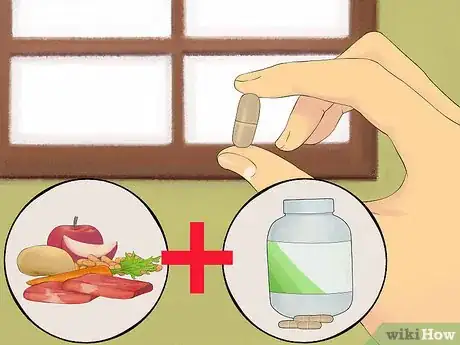
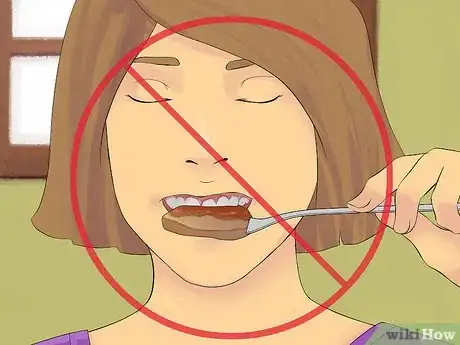


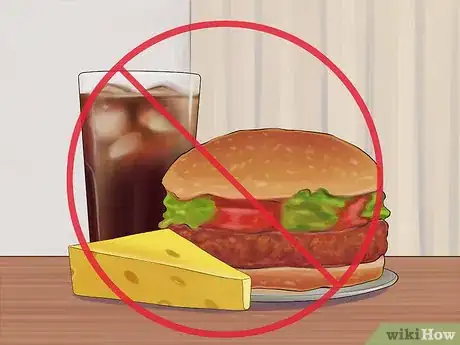
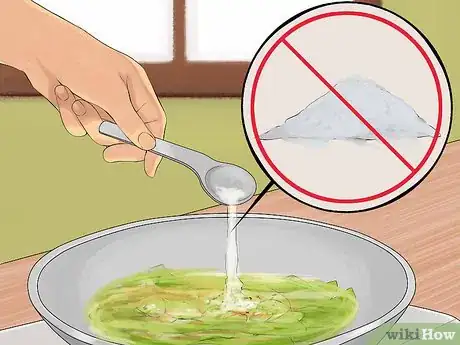








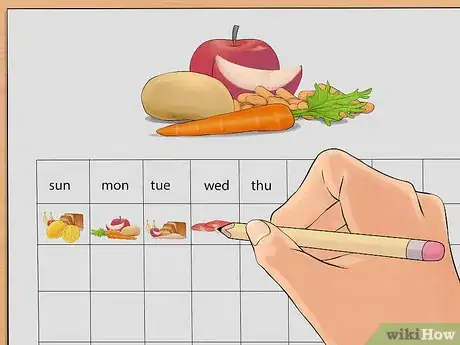


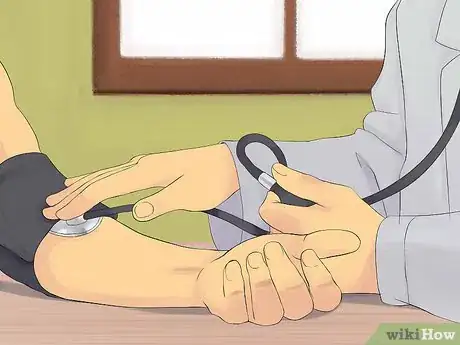
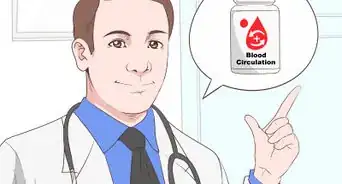
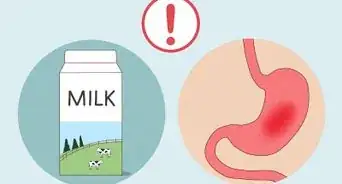
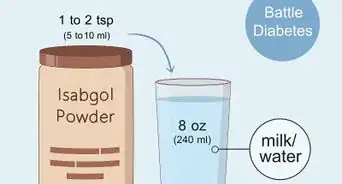


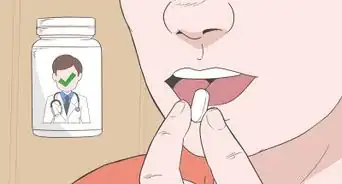


















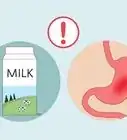
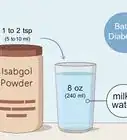




































Medical Disclaimer
The content of this article is not intended to be a substitute for professional medical advice, examination, diagnosis, or treatment. You should always contact your doctor or other qualified healthcare professional before starting, changing, or stopping any kind of health treatment.
Read More...